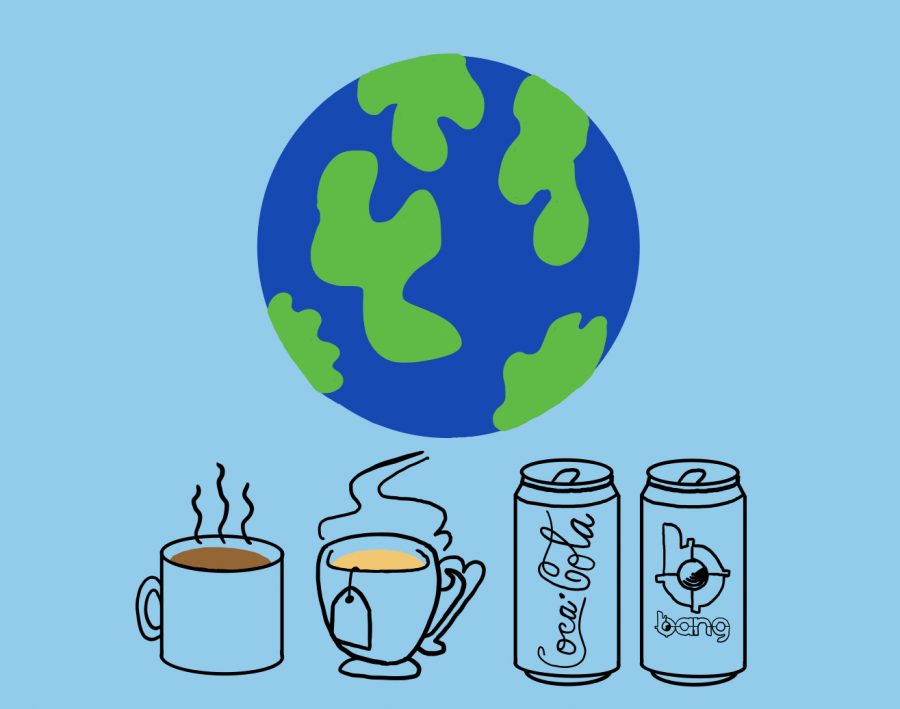Caffeine Meets World
Caffeine has swept the world with its bitter goodness, but how does it truly affect our lives?
Caffeine and its affects on the world. Image illustrated by Christina English
Caffeine is a staple of many people’s lives, a necessity to make it through the day. It’s also a type of drug that affects your brain and central nervous system. People often consume it in coffee, tea, energy drinks, like Red Bull, and soft drinks, like Coca Cola. Caffeine can also be found in chocolate and some energy bars.
Caffeine helps you focus on what you need to do, and it makes you feel more jovial and awake if you take it in small doses. If you take it in large doses, however, it can make you worry too much and not be able to get enough sleep.
“How you react to caffeine depends on your body mass, health and metabolism. It also depends on whether your body is used to getting regular doses of caffeine and how much you have in one serving,” says the Better Health Channel.
For most people, 400mg of caffeine or less every day is a healthy amount. However, people can become dependent on caffeine if their body becomes too used to the effects of it. Most people start to consume more doses in order to feel the same effects if this happens.
Some of the symptoms of caffeine withdrawal are anxiety, sweating, muscle pain, fatigue, being ill-tempered, and having headaches all of the time.
“As you cut back on caffeine, you may find yourself feeling tired. Be sure to get enough sleep, and boost your energy with exercise,” remarks Mary L. Gavin, MD of TeensHealth from Nemours.
If someone substitutes caffeinated coffee, sodas, and tea with drinks that do not have caffeine, they can slowly but surely reduce the amount of caffeine they take in; their body will become more used to living without caffeine.
The Better Health Channel also notes that energy drinks have recently involved themselves in the caffeine world: “Energy drinks contain caffeine, as well as ingredients such as taurine and guarana (a natural source of caffeine).”
Energy drinks often have more caffeine and sugar than soft drinks, which is honestly not surprising. Energy drinks also do not give people the hydration they need; this is the main difference between them and sports drinks.
As someone who doesn’t drink caffeinated drinks, all of the facts about caffeine and what it does to the body are fascinating to me. It is also intriguing how people, especially teenagers like me, are so addicted to caffeine to the point where some of them cannot go a day without it.
I believe that caffeine can affect people in a positive manner, but we need to watch ourselves and our intake of caffeine so that we do not damage our bodies.




